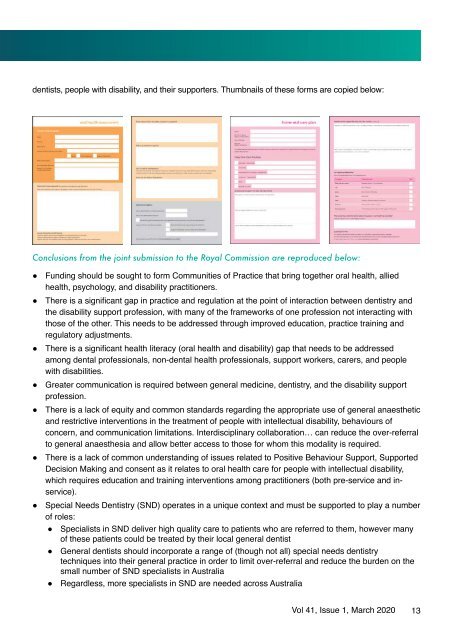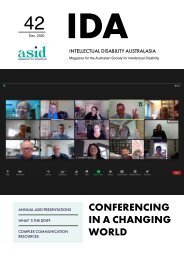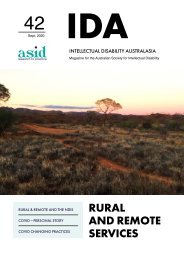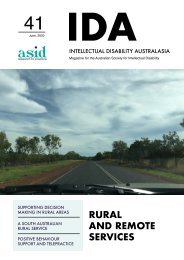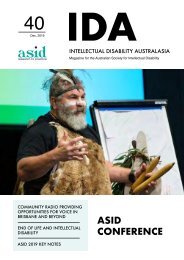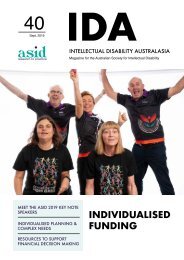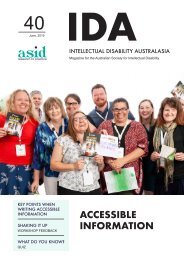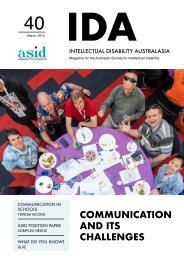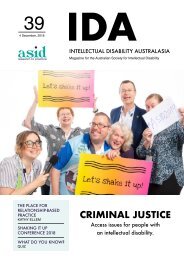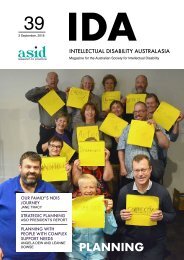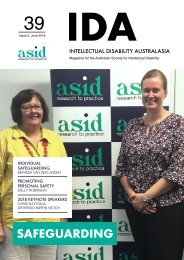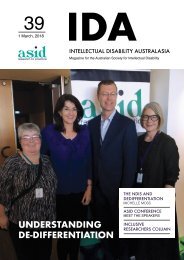IDA Volume 41 Issue 1 March 2020 (Mar 2020)
Create successful ePaper yourself
Turn your PDF publications into a flip-book with our unique Google optimized e-Paper software.
dentists, people with disability, and their supporters. Thumbnails of these forms are copied below:<br />
Conclusions from the joint submission to the Royal Commission are reproduced below:<br />
●<br />
●<br />
●<br />
●<br />
●<br />
●<br />
●<br />
Funding should be sought to form Communities of Practice that bring together oral health, allied<br />
health, psychology, and disability practitioners.<br />
There is a significant gap in practice and regulation at the point of interaction between dentistry and<br />
the disability support profession, with many of the frameworks of one profession not interacting with<br />
those of the other. This needs to be addressed through improved education, practice training and<br />
regulatory adjustments.<br />
There is a significant health literacy (oral health and disability) gap that needs to be addressed<br />
among dental professionals, non-dental health professionals, support workers, carers, and people<br />
with disabilities.<br />
Greater communication is required between general medicine, dentistry, and the disability support<br />
profession.<br />
There is a lack of equity and common standards regarding the appropriate use of general anaesthetic<br />
and restrictive interventions in the treatment of people with intellectual disability, behaviours of<br />
concern, and communication limitations. Interdisciplinary collaboration… can reduce the over-referral<br />
to general anaesthesia and allow better access to those for whom this modality is required.<br />
There is a lack of common understanding of issues related to Positive Behaviour Support, Supported<br />
Decision Making and consent as it relates to oral health care for people with intellectual disability,<br />
which requires education and training interventions among practitioners (both pre-service and inservice).<br />
Special Needs Dentistry (SND) operates in a unique context and must be supported to play a number<br />
of roles:<br />
● Specialists in SND deliver high quality care to patients who are referred to them, however many<br />
of these patients could be treated by their local general dentist<br />
● General dentists should incorporate a range of (though not all) special needs dentistry<br />
techniques into their general practice in order to limit over-referral and reduce the burden on the<br />
small number of SND specialists in Australia<br />
● Regardless, more specialists in SND are needed across Australia<br />
Vol <strong>41</strong>, <strong>Issue</strong> 1, <strong><strong>Mar</strong>ch</strong> <strong>2020</strong><br />
13


